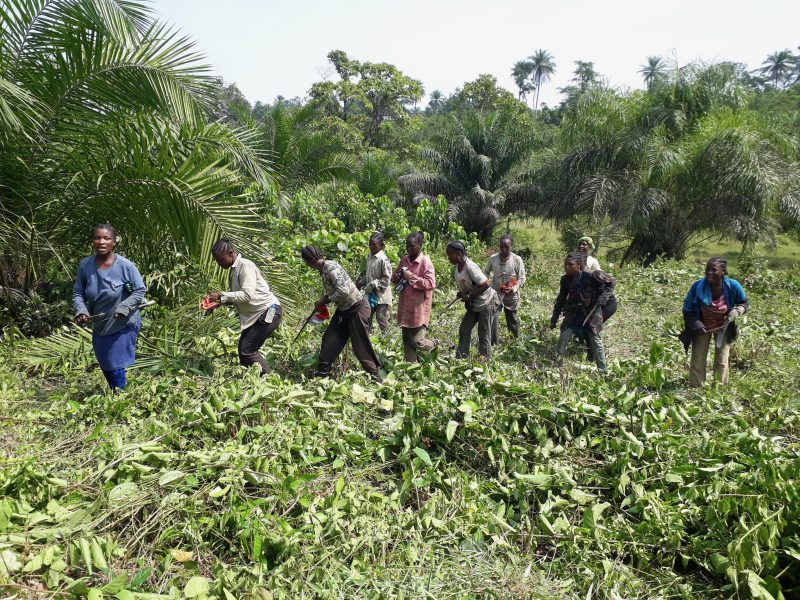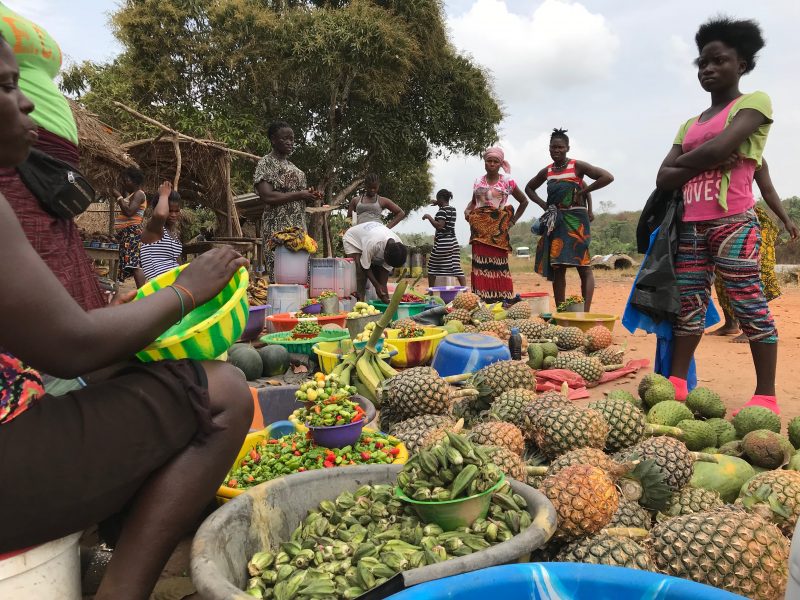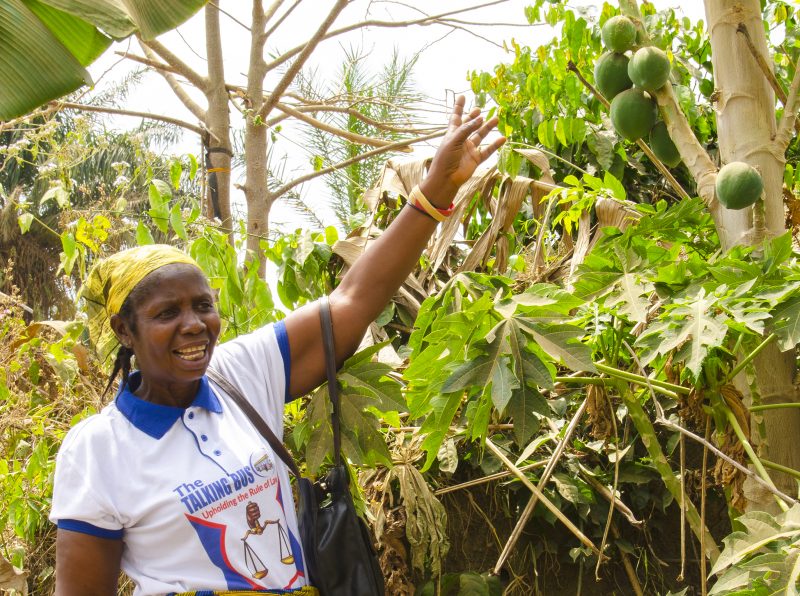
Emmanuel Urey, Landesa
Women clear grass from a small palm-oil farm in Liberia. As part of its Liberia Threshold Program, MCC helped develop the country's Land Rights Policy.
From the early part of the 19th century until 1980, Liberia was led by a small minority consisting mostly of former slaves from the United States and their descendants. During this 150-year period, most customarily owned land was controlled by this class or the government, with most Liberians left out. This history contributed greatly to the coup d'etat in 1980 that put Samuel Doe in power, the first leader of Liberia not from U.S. origins.
This land history also contributed greatly to Liberia’s two civil wars, which raged from 1989-2003. In their wake, the country was left devastated, with millions displaced and several hundred thousand dead. Recovery and development were needed throughout the economy and society.
An essential part of this recovery and development involved responding to problems around land rights. Most people with land had their rights recognized through custom and local knowledge, but not by law. Meanwhile, foreign companies held concessions from the Liberian Government for large amounts of land for investments in agriculture, forestry and mining. However, concessions and customary land rights often overlapped. Underlying this was the fact that land issues can trigger strong emotions and lead to violent conflict in places like Liberia where stability is fragile.

Tyler Roush, Landesa

Tyler Roush, Landesa
By supporting policy and legal reform, MCC's Liberia Threshold Program helped boost investment, increase economic growth, and reduce poverty overall in the country.
The Act’s key provisions include:
- Providing a clear legal description of the nature of private land ownership;
- Giving legal recognition and strong protection to customary land ownership as well as thorough legal guidance on the nuances of customary land ownership, and requiring a nationwide “confirmatory survey” to identify customary land and its boundaries;
- Providing a thorough legal description of co-ownership of private land, an important dimension of ownership which is often not well articulated in law;
- Protecting a family’s customary right to land for housing; and
- Addressing the interplay between customary land rights and concession rights to the same land. This includes requiring that a customary community affected by a concession shall have, at a minimum, a 5 percent interest in the concession, and providing that upon the expiration of the concession the land reverts to the customary community. Concessions are prevalent in Liberia, so these provisions are of great importance.
Making major policy and legal reforms typically is a steep challenge – as shown by the time and effort it took to develop and adopt the Land Rights Act in Liberia. But this example also shows that policy and legal reform are worth supporting, and that by doing so MCC can make a positive difference to boost investment, increase economic growth, and reduce poverty.

